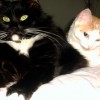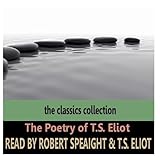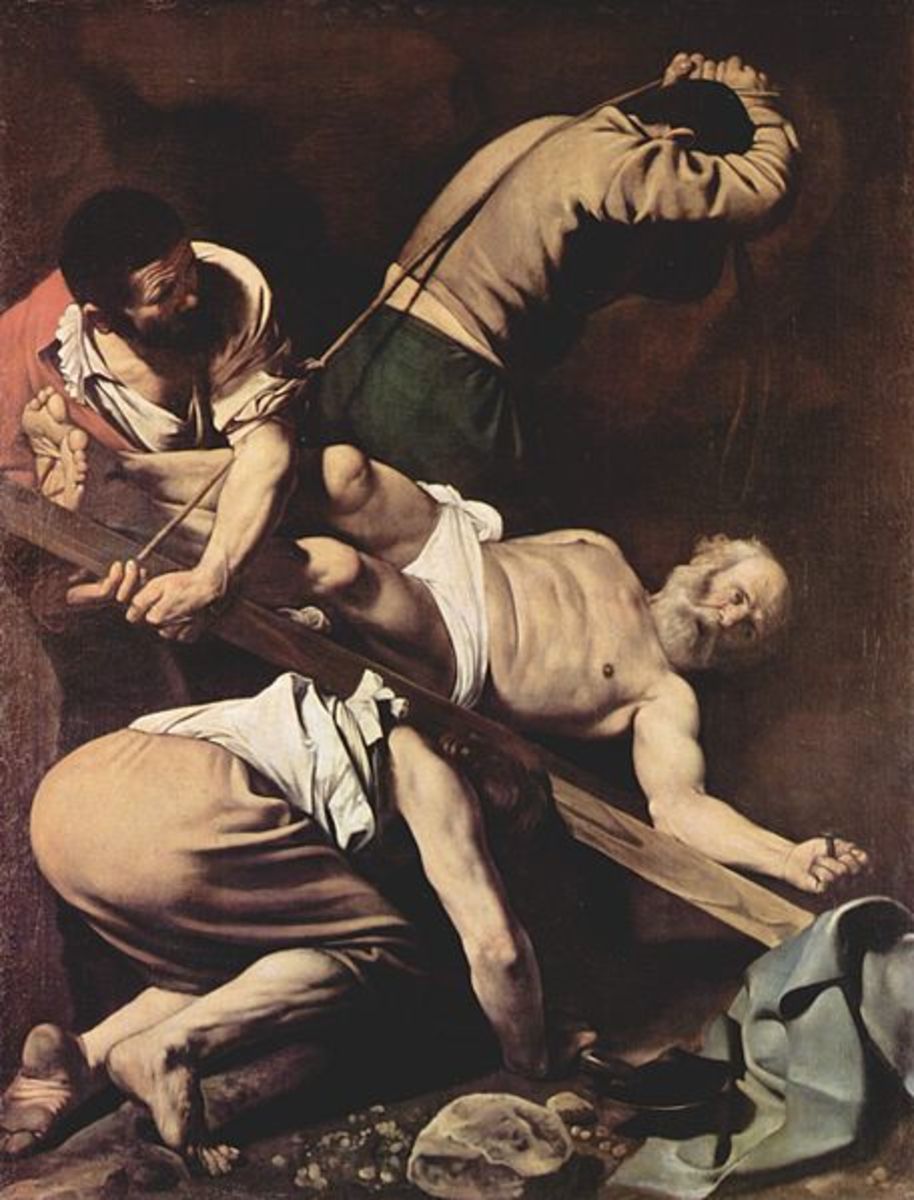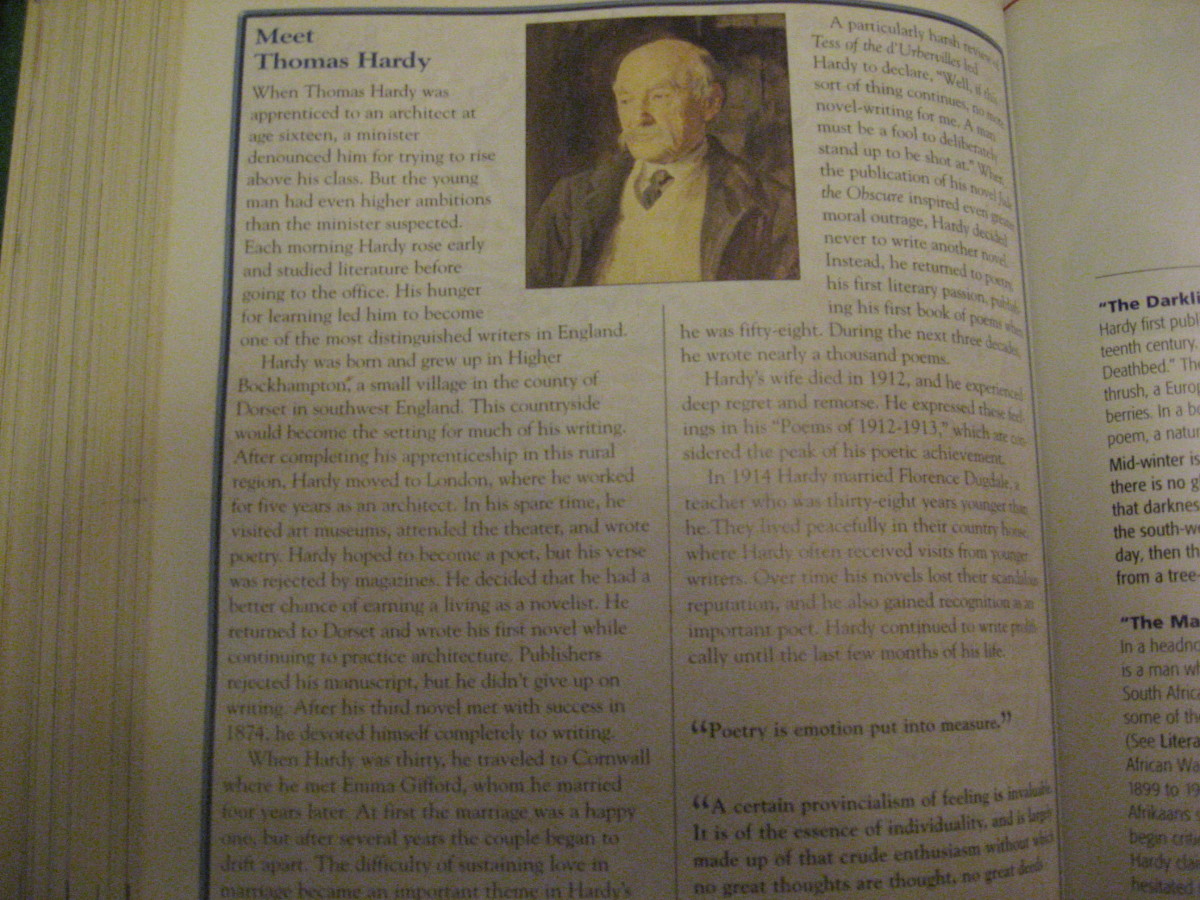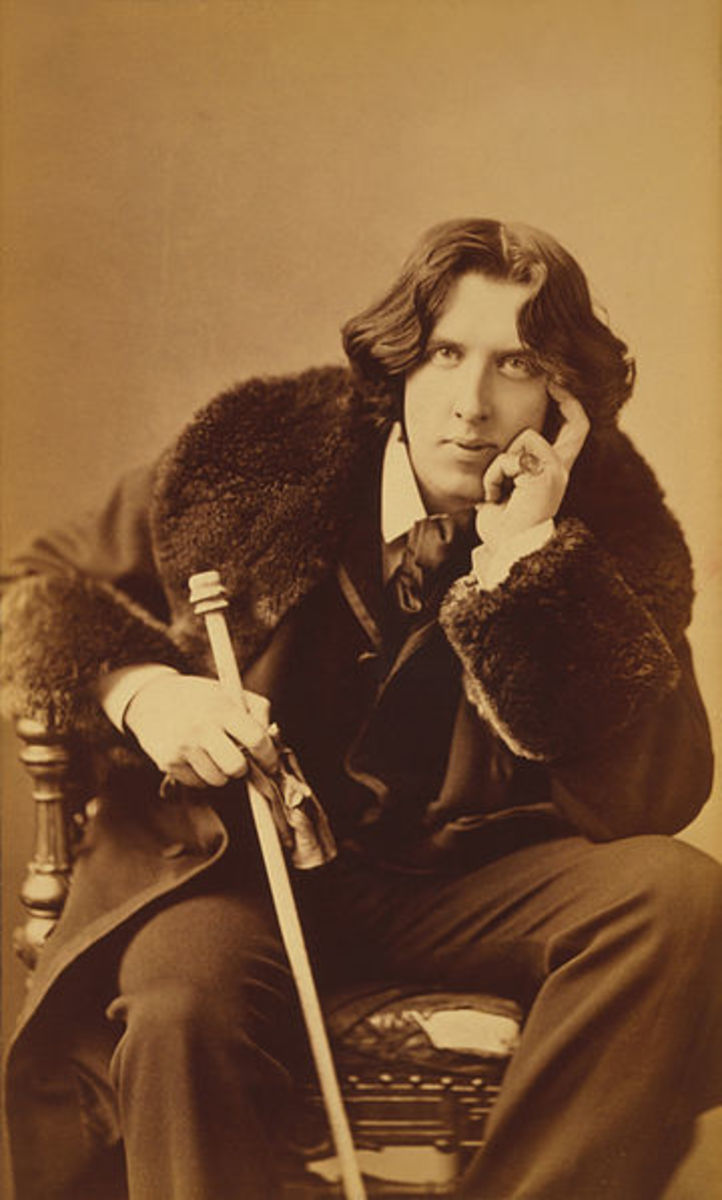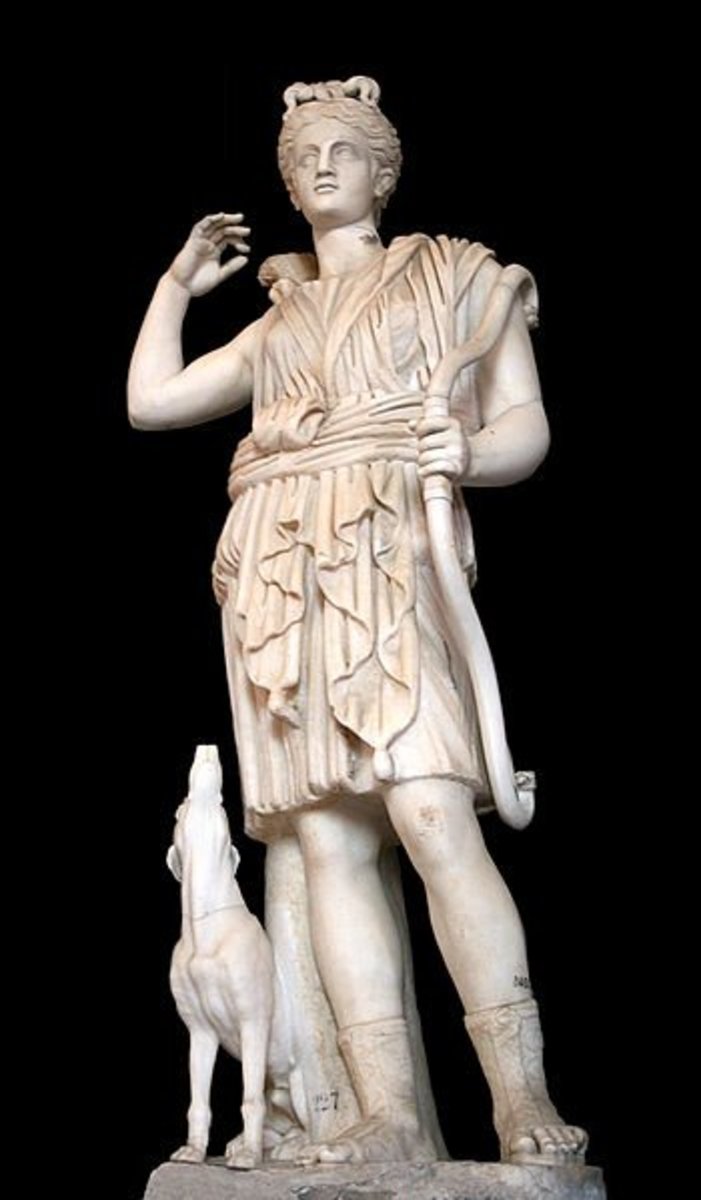Thomas Hardy and T. S. Eliot: Faith's Loss and Discovery
Eliot and Hardy
Both Thomas Hardy and T.S. Eliot use the Nativity as a vehicle to express evolution of spirit and to illustrate the sometimes contradictory nature of Christianity. Where Hardy is motivated by loss of faith, Eliot is motivated by a discovery of faith which results in both poets questioning and examining their religions. Eliot’s questioning and “quiet searching for spiritual peace…” (Abrams 2362), comes after he accepts Anglican Christianity. Prior to this he concerns himself mainly “with aspects of the decay of culture in the modern Western world” (Abrams 2362). The Journey of the Magi was written around the time of his acceptance of a new faith. The poem embodies the evolution of a conversion, and comments on its frequent contradictory response to other religions.
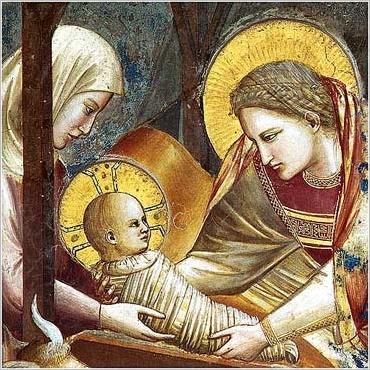
Eliot's The Journey of the Magi
In the first stanza Eliot describes a difficult journey where “The ways [were] deep and the weather sharp…” (4). Any journey, including the spiritual variety, usually involves some difficulty. “There were times we regretted / The summer palaces on slopes, the terraces, / And the silken girls bringing sherbet” (8-10), expresses a fond wish to return to the past and forget about the challenging path ahead. Further doubt and indecision echo in “…the voices singing in our ears, saying / That this was all folly” (19-20).
In the second stanza doubt takes a back seat to the dawning realization of having overcome many of the journey’s obstacles. Some relief for the traveller is experienced in “ at dawn we came down to a temperate valley” (21), and then works into the central theme of Christianity where Christ’s death is represented by “…three trees on the low sky” (24). The seeker has attained his goal, yet questions remain. “Finding the place; it was (you may say) satisfactory” (31), suggests more needs to be done, or realised, before the evolution of the soul, or humankind, is complete.
This complete evolution is destined to remain on the cusp of reality, as the writer contemplates the weightier issues of life and death in the third stanza. The line “this Birth was / Hard and bitter agony for us, like Death, our death” (38-39) encompasses an array of meaning and thought. It can refer to the new life offered to mankind by Christ’s sacrifice upon the cross, and the death of sin, yet in referring to the birth of Christianity, it also points to the countless deaths during Christianity’s attack on other races and religions in the name of God which is a contradiction to Christ’s gentler standards.
Changing from the subject of life and death, the author poses the idea of an incomplete acceptance of Christianity. “We returned to our places…” (40) touches upon the personal aspect of spiritual change where sometimes the pilgrim abandons the search, but is never quite the same “in the old dispensation” (41). The question of which way the seeker will turn remains open, and accurately depicts the process of the spiritual quest. Without questioning through the process, one can’t hope to achieve enlightenment. The free non-traditional structure of Eliot’s work has been called “highly individual in tone” (Norton 2363)and emphasises the individual nature of any and all spiritual journeys.
A Christmas Carol: The Oxen
Christmas Eve, and twelve of the clock.
"Now they are all on their knees,"
An elder said as we sat in a flock
By the embers in hearthside ease.
We pictured the meek mild creatures where
They dwelt in their strawy pen,
Nor did it occur to one of us there
To doubt they were kneeling then.
So fair a fancy few would weave
In these years! Yet, I feel,
If someone said on Christmas Eve,
"Come; see the oxen kneel,
"In the lonely barton by yonder coomb
Our childhood used to know,"
I should go with him in the gloom,
Hoping it might be so’
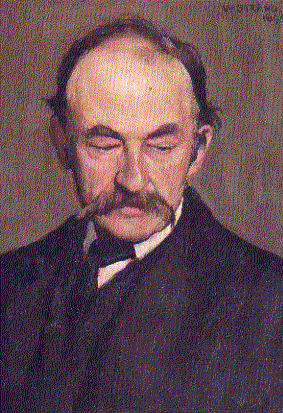
- Thomas Hardy - Biography and Works
Thomas Hardy. Biography of Thomas Hardy and a searchable collection of works. - T.S. Eliot - Biography
Hardy's A Christmas Carol: The Oxen
Where Eliot appears to be looking forward to a new awakening in his thoughts and his questioning of religious faith, Thomas Hardy looks back with an affectionate, nostalgic eye to lost faith and simple innocence in A Christmas Carol: The Oxen. He hearkens back to a time of childhood where “we sat in a flock” (3) as children sit around an elder listening to the Christmas story. The children have no doubt that “they [oxen] are all on their knees’” (2). Their innocent faith in all they were taught supersedes any need of proof. Hardy’s own innocent faith that had prompted him to contemplate a religious career had been dealt a discouraging blow by the writings of people such as Darwin “in whose hands God had become an unnecessary hypothesis in a non-sentient universe […]” (Works viii). “Hoping it might be so” (16) taints the poem with a wistful end where Hardy longs for childhood days when faith knew no limits through innocence. It is as if he has temporarily forgiven God for disappointing him. Hardy’s use of an uncomplicated verse structure where the rhyme is a strict abab, cdcd, efef , and ghgh, adds to the simplicity of a child-like innocent faith and reads like a nursery rhyme.
Through their unique depictions of the Nativity both poets analyse and question the nature of spirituality. Where Hardy laments the loss of an innocent faith, Eliot peruses the evolution of spirit in a complete manner which includes examining its negative side. Interestingly, both poets, known for their critical comment on religion or society in general, have moderated their views slightly when it comes to the Nativity giving credence to the myth that Christmas can soften the hardest hearts.
Works Cited
1. Abrams, M.H., ed. Norton Anthology of English Literature. 7th ed. Vol.2. New York: W.W. Norton & Company, 2000
2. Eliot T.S. “The Journey of the Magi.” The Bible and Literature . Ed. David Jasper and Stephen Prickett. Oxford: Blackwell Publishers Ltd. 1999.
3. Hardy, Thomas. “A Christmas Carol: The Oxen.” The Bible and Literature. Ed. David Jasper and Stephen Prickett. Oxford: Blackwell Publishers Ltd. 1999
4. Hardy, Thomas. The Works of Thomas Hardy. Hertfordshire: Wordsworth Editions Ltd. 1994
